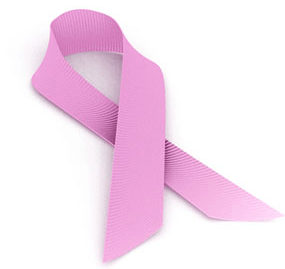Parliament emphasises early detection and treatment of breast cancer
 Parliament on Friday called for the need to care for the breast, with emphasis on early detection of breast cancer to save lives.
Parliament on Friday called for the need to care for the breast, with emphasis on early detection of breast cancer to save lives.
“Babies need their mothers’ breasts, the mothers themselves need their breasts for cosmetic and aesthetic reasons’ two of the many reasons why the breast deserves attention, Dr Zanetor Agyemang- Rawlings. MP for Korle Klottey; and Dr Bernard Okoe Boye, MP for Ledzokuku, said in a joint statement.
The statement was read on the floor of the House by Mr Mohammed Bawa Braimah, MP fpr Ejura Sekyeredumase.
The statement is in commemoration of the month of October, designated since 1985, through partnership between the American Cancer Society and the Pharmaceutical Division of the Imperial Chemical Industries to promote awareness about breast cancer prevention, diagnosis and treatment.
Breast cancer is a disease condition in which the breast tissue becomes cancerous and begins to grow out of control.
Some signs and symptoms of the condition include; breast lump, lump in the armpit, change in the colour of the breast skin, bloody nipple discharge and disoriented nipple position.
Quoting World Health Organisation (WHO) figures, the makers of the statement said “a total of two thousand Ghanaians women were diagnosed in 2012 with breast cancer, … and one thousand died of the disease.”
Also, breast cancer is the second leading cause of death in Ghana with one out of every eight women with the condition dying of the disease.
Men can also get breast cancer, which appear around the pectorals, especially in the nipple and areola areas.
Drs Agyemang Rawlings and Boye regretted the loss and damage to life by the disease and called for improved early detection mechanisms to save lives.
“It is sad that due to poor early detection mechanisms, the breast that gives life is made to become the taker of life,” they bemoaned.
Nenyi George Andah, MP for Awutu Senya West, in anorther statement on the disease and the awareness creation said “Africans, according to some studies, develop the cancer some 10-15 years before Caucasian women, putting us at higher risk and therefore in need of faster intervention.
He said breast cancer is increasingly becoming a medical condition of major concern.
In Ghana, breast cancer prevalence seems to be increasing from 12.8 per cent in 1996 to 15.4 percent in 2007 per records at the Korle-Bu Teaching Hospital, the MP said adding that “over 70 percent of all cases reported in the country were in the advanced stages.
This he said may be due to the lack of awareness on the issue; cost; lack of access to routine screening mammography; social stigma and or the preference of traditional healers over doctors.
The situation of late detection often results in death due to the fact that symptoms are often ignored or unknown by individuals until the disease has fully metastasised (spread).
The number of diagnosed cases increases annually and there is an urgent need to focus attention on awareness, education and most importantly routine screening preferable mammography in order to drive early detection, treatment and ultimately reducing the prevalence and mortality rates in our society.
“We should not sit and allow Breast Cancer to continue tearing into us. Breast Cancer does not have to be death sentence, and our handicap in Ghana is early detection,” Nenyi Andah said.
With reference to Mrs Rebecca Akufo- Addo, the First Lady of the Republic, who recently launched the Breast Cancer Awareness Campaign at the Karle-Bu Teaching Hospital, Nenyi Andah stressed early detection and effective treatment as ways to make a headway in improving the sad outcomes of Ghanaians with breast cancer.
He listed risk factors that increase the likelihood of women developing the disease as age between 50-69 years, with a lesser incidence in younger women, family history, reproductive factors such as a later age at first pregnancy, inability to conceive, early onset of menses, later age of menopause amongst others can make one more susceptible to the disease.
Lifestyle habits including; reduction or limit of alcohol, avoidance of smoking, controlling one’s weight, being physically active, breast feeding, avoiding exposure to radiation and pollution reduce the risk of breast cancer.
Nenyi Andah announced that this year, the Korle-Bu Teaching Hospital has spearheaded a campaign that was targeted at helping people detect the presence of the disease at an early stage to assist in effective treatment.
“It is a commendable initiative as voluntary breast screening can help one detect the earliest stage of breast cancer where there is the absence of lumps and just calcium flecks that can be seen through a mammogram.”
He said other partner health institutions include, amongst others, the Komfo Anokye Teaching Hospital, 37 Military Hospital, Accra Regional Hospital, Nyaho Medical Centre, Ho Regional hospital, Trust Hospital, Well Woman Clinic.
The government has also taken up the initiative to put in place various programmes to introduce educative health care to all parts of the country and also train more health care professionals and specialists in early detection in order to facilitate timely treatment, thereby reducing the mortality rate.
The makers of the statement appealed to the Media to help create more awareness on the disease and urged fellow legislators to help promote and support the Pink October activities and extend the support even beyond the month until it penetrates every community.
Source: GNA
